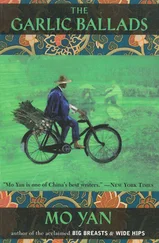She had confided in him; now she wanted him to do the same.
Somehow, Fabio found himself telling her about how he had stayed in China when his parents died and how he had been brought up by Chinese adoptive parents. It struck him that no one had ever wanted to listen to his story before. As she sat there, he was overcome with the desire to tell her absolutely everything. He went back to the beginning and filled in, in vivid detail, everything he had skated over. She listened in rapt attention. When he told her how anxious and apprehensive he had felt when he first met his American relatives, she smiled compassionately. This really was a woman of great empathy and understanding.
It occurred to Fabio that he might stop drinking if he had someone to tell his troubles to. A listening face like hers was intoxicating enough.
‘I never thought I’d ever end up talking to a priest,’ said Yumo.
And Fabio had never imagined that he would confide the story of his life to a prostitute.
‘Will you stay on here at the church?’
Fabio looked blank. He had always assumed that he would pass the rest of his days here and, when the end came, be buried next to Father Engelmann in the churchyard. But now that Yumo had put the question, he suddenly began to have doubts. They were nebulous, ill-defined doubts but they coexisted with his former certainty. God’s existence was nebulous too; especially last night, when the Creator had seemed so completely powerless, as easily cowed as human beings. He looked at the woman who had inspired these doubts in him. He heard himself telling her the story of how he met Father Engelmann. Meanwhile, another part of his mind was elaborating on his daydream: how, at eleven or twelve, the child Yumo might have met a Western youth who spoke in Yangzhou dialect, and that youth might have sent her to the Mary Magdalene Missionary School for Girls, all the while waiting for her to grow up. When she had finished secondary education and had become a superbly beautiful young woman, Fabio would have gone to her and declared his feelings.
He looked at her now—at that mouth which had been kissed by so many men, and at her beautifully defined chin. Her black cheongsam clung tightly to her figure. She had the body of a woman in a Chinese watercolour painting; a Westerner needed an understanding of Chinese culture to dream of its soft, subtle curves.
And Fabio did dream. He dreamed that her clothes peeled off to reveal her pearly white skin underneath, skin which was bleached pale because of the late hours she kept. He was filled with confusion. If she were to love him, really and truly, then he would be finished, wouldn’t he? Surely he should be grateful that she was only playing with him?
‘I’ll be off now,’ she said, getting up. Her eyes were slightly less red and swollen.
She had shed so many tears for Major Dai, who was no longer on this earth. Fabio was filled with jealousy. If he died, how would she react? She might have a pang of grief, and then she would think: ‘Well, he’s gone, that man who was neither Chinese nor Westerner. It makes no difference whether he’s here or not.’ In fact, it made no difference to anyone.
‘Have you got all of that, Father?’
Fabio looked at her, puzzled. She tilted her head to one side as if she was going to laugh. Fabio realised she was asking if he remembered everything she had told him about herself. She felt she was someone who, when she had gone, would leave no trace in this world. If Fabio remembered anything at all about her, she wanted it to be that her life had had some meaning.
He felt a pang of pain the like of which he had never felt before.
Sixteen


It was after two in the afternoon when Father Engelmann returned from the Safety Zone. He had managed to bring back five or six pounds of rice tucked away in his cassock. Fabio made rice porridge and called the women and girls into the refectory. Father Engelmann told them that, just the day before, the Japanese Army had openly seized scores of women in the Safety Zone and taken them away. They had been very devious: first, they had staged the arrest of some Chinese soldiers; this brought the authorities in the Safety Zone to the front entrance of the Jin Ling Girls’ Academy, allowing the Japanese to round up the women, take them out of a side door, and load them onto a lorry concealed nearby. Conditions in the Safety Zone were worse than at the church, he went on. There was raw sewage everywhere, contagious diseases were rife, and the refugees were fighting over basic necessities. The authorities did not think that a dozen or so thirteen- and fourteen-year-old girls would be any safer there. So Father Engelmann had agreed with Miss Vautrin, the head of the Jin Ling Girls’ Academy who was one of the organisers of the Safety Zone, that an ambulance would come to the church that night and take the girls to Dr Robinson’s house.
It gets dark early in Nanking in December. By four o’clock it was night. Father Engelmann was taking a nap in his study; he had moved his bed there so as not to have to waste any firewood heating the rectory. It also meant he could hear Fabio Adornato going up and down the stairs and in and out of the building, which he found comforting. In this indirect way, Fabio was company and gave him courage, too.
Fabio raced up the stairs, shouting, ‘Father!’
He sounded terrified out of his wits.
Father Engelmann gripped the arms of his chair and tried to raise himself to his feet. His knees buckled and he sat down again. Fabio was at the door.
‘There are two trucks outside! I saw them from the church tower!’ Fabio shouted.
Father Engelmann stood up. As he did so, the long slash in his goose-down-padded coat gaped open, showing the lining, red like a wound. Fabio looked desperate, as if he had no idea what to do. Neither do I, thought Father Engelmann.
‘Go and tell everyone to prepare themselves. Tell them not to make any noise and not to come out under any circumstances.’ He put on his black cassock and picked up his crook.
He went into the courtyard, and was greeted by a mass of khaki uniforms; the Japanese soldiers had scaled the wall and were perched on top in serried ranks, looking just like a flock of strange yellow birds blown in on a storm.
The doorbell rang. This time, it was a timid sort of a sound, with a couple of seconds’ gap between each ring. Father Engelmann saw Fabio coming out of the kitchen; the women and girls must have received his instructions. He jerked his chin at the younger priest, as if to say: It’s down to you and me now .
Side by side, they walked to the door and opened the spyhole. This time it was not a bayonet which came through but something bright red. Father Engelmann could see that the Japanese officer was holding up a pot of Christmas poinsettias in his dazzlingly white gloved hand, the petals an intense red.
‘What’s the point of ringing the bell?’ said Father Engelmann. ‘I thought you didn’t like coming in through the door.’
‘Please accept our apologies for the disturbance we caused you last night, Father,’ said the officer, clicking his booted heels together and making a deep bow.
He even went to the trouble of delivering this little speech in English.
‘Did you really need to bring a group of heavily armed soldiers with you to apologise?’ said Father Engelmann.
An interpreter came into view, a cultured-looking gentleman in his fifties wearing gold-rimmed spectacles.
‘It’s nearly Christmas, and the soldiers have come to bring you Christmas greetings,’ explained the interpreter. He seemed to have rehearsed his lines in advance, as his master only smiled without speaking.
Читать дальше














